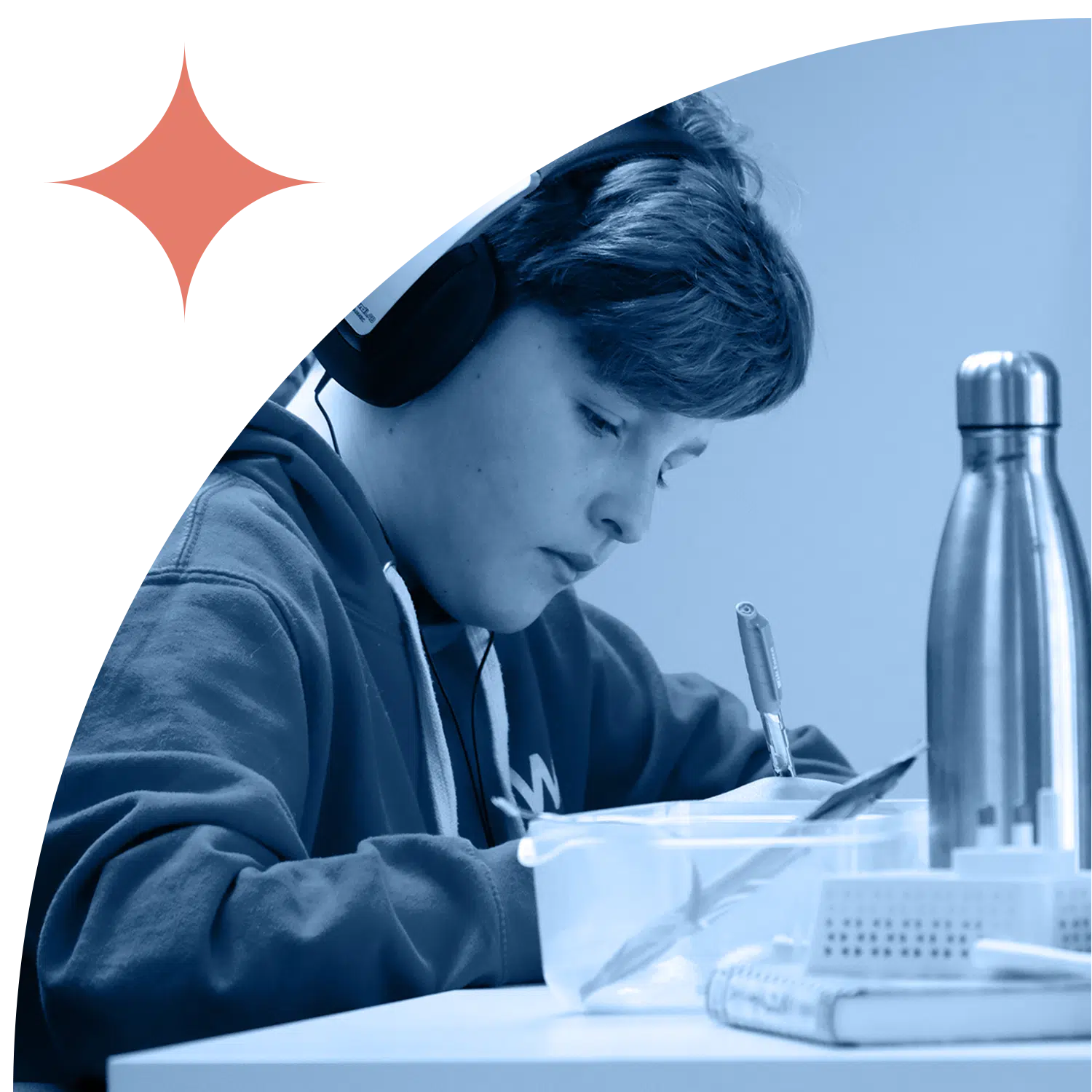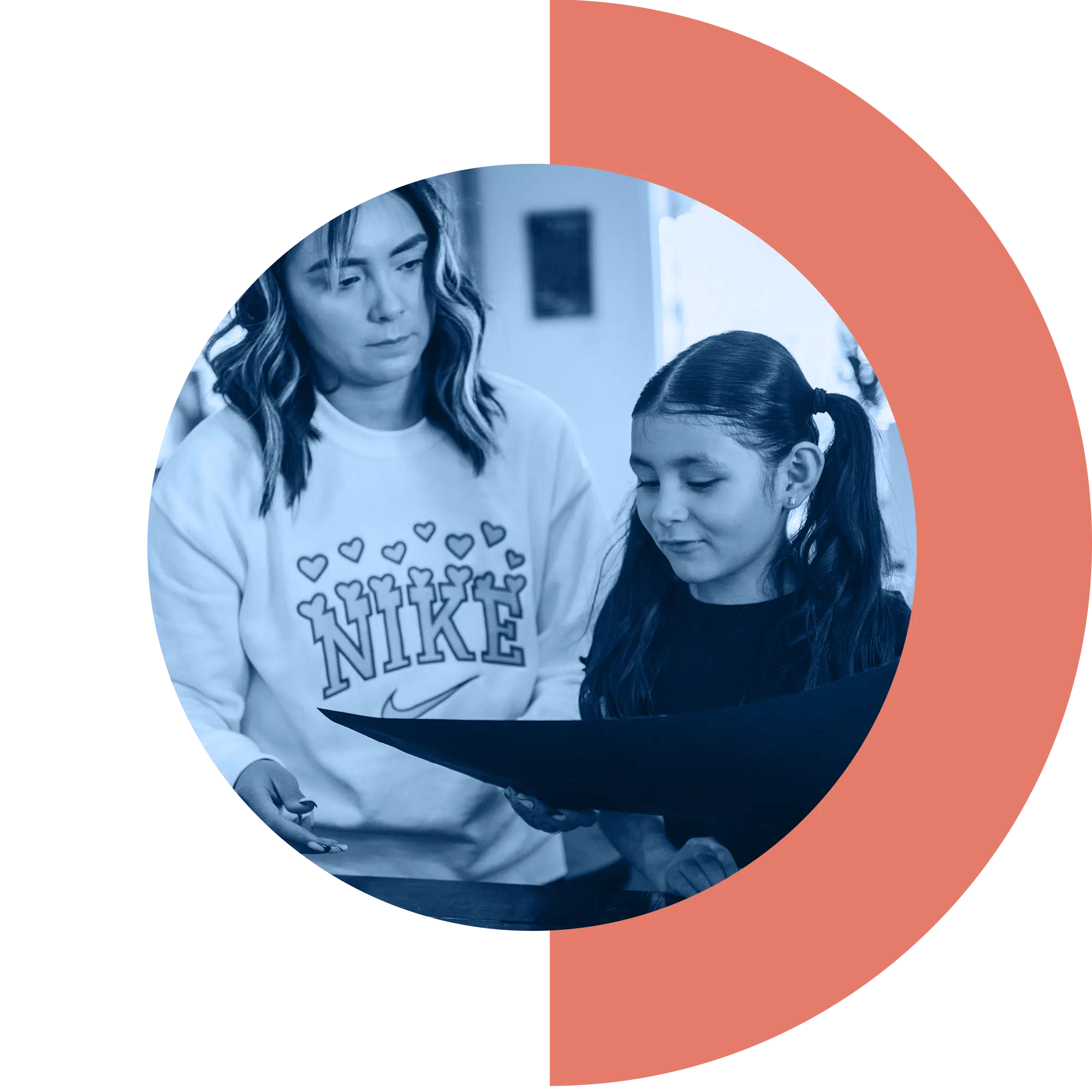Child / Youth Assessments
Unlock your child’s potential with comprehensive youth psychological and learning assessments. Our expert team works with children and youth ages 12–18 to identify emotional, behavioural, and learning challenges—as well as giftedness. We provide clear answers and personalized recommendations to support success at school, at home, and beyond. Whether you’re seeking clarity, next steps, or support, we’re here to guide you with compassion and evidence-based care.

Comprehensive Assessments
Gain clarity on your child’s learning, emotional, or behavioural challenges through in-depth psychological and educational evaluations conducted by experienced clinicians.
Evidence-Based Insights
Our assessments explore cognitive abilities, academic performance, and mental health to provide a full picture of your child’s needs—using trusted, research-backed tools and approaches.
Personalized Support Plans
Receive a comprehensive report and expert guidance, including recommendations for school, home, and next steps tailored to your child’s unique strengths and areas of need.

Clarity When It Matters Most
When your child is facing difficulties, not knowing why or what to do can be overwhelming. Our assessments are designed to uncover the “why” behind struggles with learning, attention, or emotions—helping you move forward with confidence and a clear understanding of what your child needs to thrive.

Support That Goes Beyond the Diagnosis
We don’t just deliver results—we provide a roadmap. With personalized recommendations and a collaborative approach, we help families, educators, and healthcare providers work together to support your child in meaningful, practical ways at school, at home, and in life.
Understanding Youth Psychological & Learning Assessments
When a young person is struggling—with learning at school, regulating their emotions, maintaining attention, or navigating daily challenges—it can be difficult to know what’s behind the difficulties or where to turn for help. A psychological and learning assessment can provide valuable clarity, helping to uncover the root of the problem and guide a path forward.
At OICBT, our child / youth assessments are designed to understand the whole person. We offer comprehensive evaluations that explore cognitive, academic, emotional, behavioural, and executive functioning. Whether concerns have been raised by a parent, teacher, or other professional, we’re here to support families in gaining insight and making informed decisions.
What Do Child / Youth Assessments Involve?
Each assessment begins with a clinical intake to understand the child or youth’s developmental history, current concerns, and context—at home, in school, and in other settings. We work collaboratively with caregivers to gather background information and identify key areas for exploration.
During Your Appointments (In-Person Sessions)
-
Clinical Intake Interview: We begin with a one-on-one conversation with parents or caregivers to understand your child’s developmental history, current concerns, and daily functioning across settings.
-
Diagnostic Interview (if applicable): In some cases, we may include a one-hour diagnostic session with your child or teen to explore symptoms more deeply and help clarify mental health concerns.
-
Cognitive Testing: Your child will complete one-on-one tasks measuring reasoning, memory, verbal and non-verbal abilities, processing speed, and visual-motor coordination.
-
Academic Achievement Testing: We assess reading, writing, and math skills to better understand your child’s learning strengths and areas of difficulty.
-
Self-Report Questionnaires: If appropriate, your child or teen will complete questionnaires to help us better understand their internal experiences and emotional well-being.
-
One-Hour Feedback Session: Once the assessment is complete, we meet with parents or caregivers to review the results, answer questions, and offer clear next steps.
Outside of Appointments (Completed Behind the Scenes)
-
Parent/Caregiver Questionnaires: We ask you to complete detailed forms to help us understand your child’s behaviours, emotional patterns, and functioning at home.
-
Review of School Records: We review any available report cards or academic documentation to gain insight into long-term learning patterns and school performance.
-
Social-Emotional and Behavioural Screening: We score and interpret the results of questionnaires to assess mood, anxiety, behaviour concerns, and attention-related difficulties.
-
Executive Functioning Assessment: We evaluate how your child manages focus, planning, and organization using a combination of observed and reported data.
-
Optional Teacher/School Input: With your consent, we may reach out to your child’s school for teacher feedback or questionnaires to better understand the classroom experience.
-
Detailed Written Report: After compiling and analyzing all the data, we prepare a clear, comprehensive report that outlines results, interpretations, and tailored recommendations for home, school, and any additional support.
Where Does The Assessment Take Place?
All sessions involved in the assessment process typically take place in-person at our clinic. Assessments are completed in a private, welcoming office environment designed to help children and youth feel comfortable and supported. Our team is committed to creating a positive experience for every family, making sure the process feels clear, supportive, and tailored to your child’s needs.
Who Might Benefit from an Assessment?
Psychological and learning assessments can be valuable at many key points during a child or youth’s development. They are often most helpful when concerns about school performance or emotional well-being arise, or during important transitions such as entering a new grade level or planning for post-secondary education.
Assessments can be especially beneficial for children and youth aged 12 to 18* who are:
-
Struggling with academic performance despite strong effort
-
Showing signs of ADHD, difficulty concentrating, or disorganization
-
Managing anxiety, low mood, intense emotions, or frequent outbursts
-
Having trouble with peer relationships, social skills, or self-esteem
-
Displaying behaviours that seem out of step with their developmental stage
-
Seeking a better understanding of their learning style, cognitive strengths, and support needs
-
Demonstrating advanced abilities and may benefit from giftedness testing to inform enrichment or academic planning
Assessments are also recommended when a child / youth already has a diagnosis but updated information is needed for school planning, treatment decisions, or tracking developmental progress. Early identification and intervention can make a significant difference in a young person’s confidence, resilience, and long-term success.
What Happens After the Assessment?
Once testing is complete, families receive:
-
A Comprehensive Report: This includes results, interpretation, and clear, jargon-free explanations of what the findings mean. If applicable, it includes diagnoses in line with DSM-5-TR criteria.
-
Recommendations: Practical, tailored suggestions for support at home, at school, and in treatment (if needed). This may include accommodations for learning, referrals to additional services, or strategies for managing emotions and behaviour.
-
A Feedback Session: We meet with the family to review the report, explain results, and answer questions. For older youth, we often include them in the feedback process in an age-appropriate way.
Our goal is to ensure families feel informed, supported, and empowered with a clear direction for next steps.
Why Choose OICBT for Youth Assessments?
-
Expert Clinicians: Our assessments are conducted by registered psychologists and clinicians with specialized training in youth development, psychology and/or cognitive testing, and education.
-
Evidence-Based Approach: We use gold-standard assessment tools and stay current with the latest research to provide accurate, reliable results.
-
Personalized and Compassionate Care: We understand that every child is unique. Our assessments are thoughtful, sensitive, and focused on the whole person—not just the challenges.
-
Collaborative Process: We work closely with families, educators, and other professionals (when appropriate) to ensure a full understanding of the youth’s needs and how to best support them.
*Please note: if you are looking for services for children ages 4-11, please contact Dr. Jennifer Karp directly. Services for children under the age of 4 are not currently available through our practice.
Frequently Asked Questions: Youth Assessments
We understand that finding a good fit between a therapist and your child can feel overwhelming. See below for the most frequently asked questions.
Unfortunately, we are not able to offer assessments to clients with suspected or confirmed autism. In these cases, we would be happy to help redirect you to community providers that specialize in this area to ensure your child receives the most appropriate and effective care.
If your child has experienced a concussion within the past six months or is currently experiencing ongoing symptoms related to a past concussion, we recommend seeking care from a neuropsychologist. At this time, OICBT is not able to provide treatment for clients with a history of traumatic brain injury (TBI), including concussions with lasting effects. In these cases, we would be happy to help redirect you to a neuropsychologist who specializes in this area to ensure your child receives the most appropriate and effective care.
We recognize that parents and caregivers play an important role in a youth’s assessment process. Your level of involvement will depend on your child’s age and preferences. For younger youth, parents will be involved throughout the process. For older youth and teens, we prioritize their autonomy and confidentiality, while still encouraging open communication and collaborative involvement when appropriate. Our clinicians will work with you and your child to find the right balance of involvement to best support them throughout the assessment, and in their overall well-being.
Current prices for all our clinical services, including this assessment are listed on our Current Fees page.
Most insurance providers will cover our services. As policies and coverage can vary, please check with your provider.
When completing assessment or treatment sessions that include you in the session, the session can be invoiced as a family session supporting your child and submitted for reimbursement.
